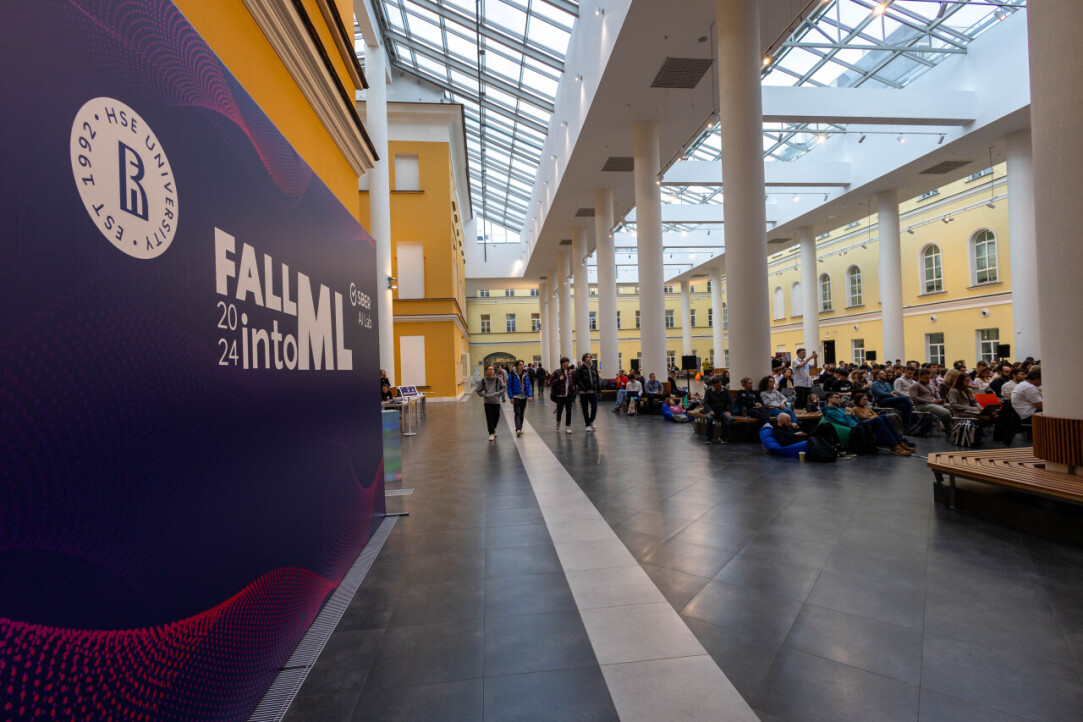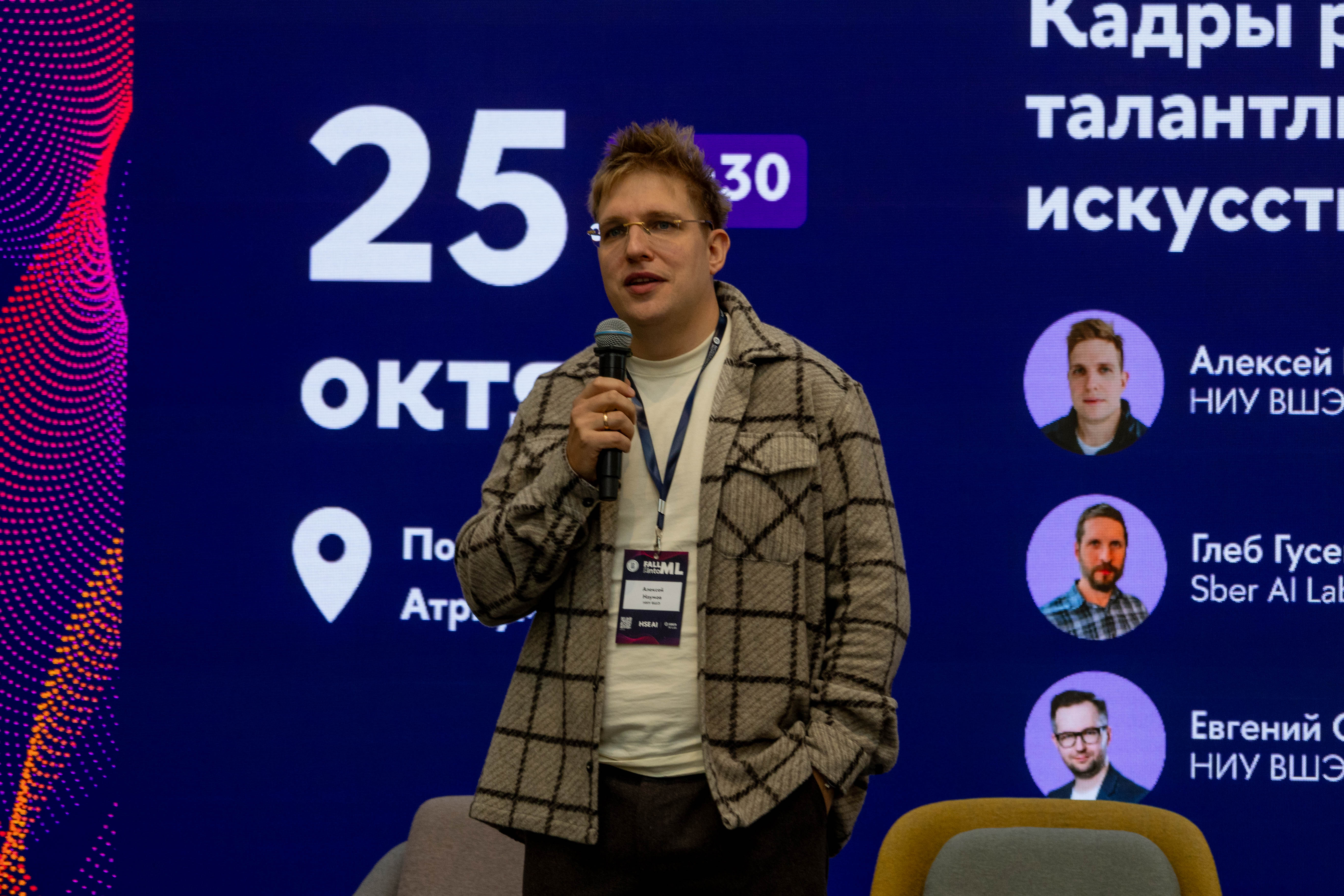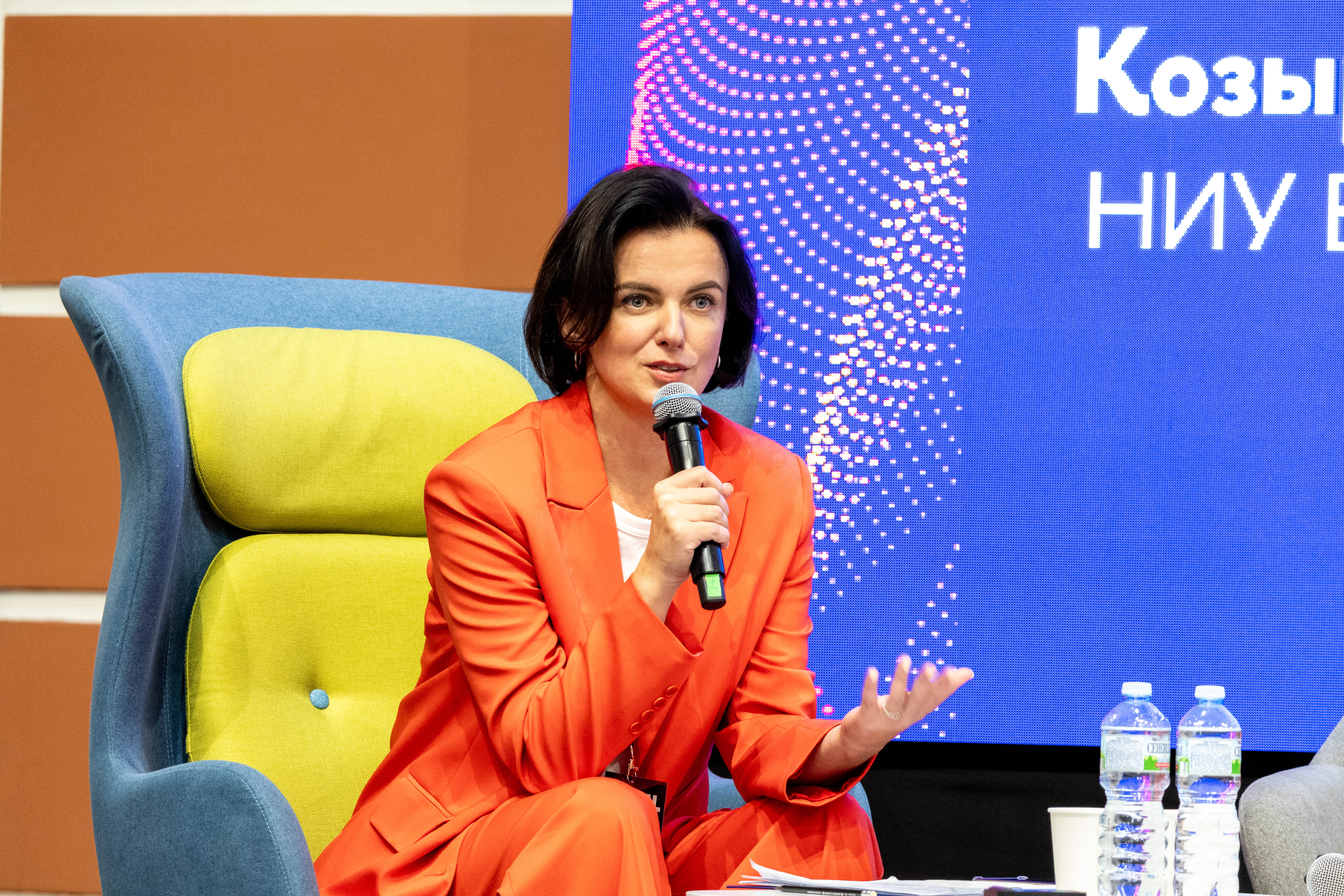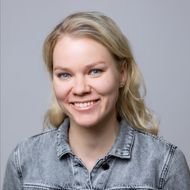Fall into ML 2024: Looking into the Future of Machine Learning

On October 25-26, the Fall into ML Conference was held in Moscow, organised by the AI and Digital Science Institute of the HSE Faculty of Computer Science in collaboration with the AI Research Centre and with support from the title partner, Sber. Over the course of two days, leading experts in artificial intelligence discussed prospects for advancing fundamental AI technologies.
The conference focused on the latest advancements in AI, including generative modelling, large language models, reinforcement learning, optimisation, neural network quantisation, and more, as well as practical applications of these technologies across diverse industries, from business to medicine to education.

Alexey Naumov, Director for Basic Research, AI and Digital Science Institute, HSE Faculty of Computer Science
'The Fall into ML Conference was held for the third time, with over 500 participants and 70 A* level poster presentations. During the tutorial session held in the White Hall of Durasov House, there wasn’t a single empty seat. The poster session lasted three hours, and participants were reluctant to leave. I believe this was a success! We are planning to have over 100 posters next year and hope to welcome international AI researchers to participate in the conference.'
The two-day conference featured a tutorial session, workshops, presentations, and panel discussions. One of the central discussions, titled 'Human Resources Decide Everything: Nurturing Talented Artificial Intelligence Researchers,' brought together Russian scientists and university representatives to share their experiences in training AI specialists and discuss the challenges of attracting and retaining young talent.
For the first time, the conference hosted a special panel discussion on the role of women in science. Female researchers from HSE University, Sber, AIRI, and Skoltech discussed the advancement of AI technologies and the importance of inclusivity within the scientific community. The discussion addressed topics such as women's early steps in science, motivation to pursue research, and the reasons behind their particular interest in artificial intelligence. Recent research that has captured the attention of female scientists, as well as the challenges of balancing social and professional roles, were also discussed. The session concluded with the recognition that in today’s world, particularly in the field of end-to-end artificial intelligence technologies, there are no limitations to the development of human potential.

Anna Kozyreva, Director of the Project Office, HSE AI Centre
'Women play an important role in the development of artificial intelligence, as they do in every other field of science and technology. They make significant contributions to the research, development and application of AI, and are happy to share their experience and knowledge.’

Elena Tutubalina, Head of 'Domain-specific NLP' group at AIRI, Research Fellow at HSE FCS
'Anyone can come up with a unique idea, regardless of gender. It’s time to move past stereotypes about male and female professions and have the courage to try new things, especially when choosing a career. Every girl should remember this.'

Olga Plosskaya, Project Lead at Project and Infrastructure Management Centre, Sber AI Lab
'Today, we have every opportunity to realise our potential as scientists of international calibre. A career in science is built primarily on hard work and the passion to pursue what you love. Success depends not only on individual talents but also on teamwork, cooperation, and mutual support.'
The conference featured a tutorial session focused on modern methods of generative modelling based on comparisons of flows and diffusion bridges. Alexander Korotin, Head of Generative AI Research Group at Skoltech Applied AI Centre and researcher at AIRI, discussed the methods used to train large text-to-image generative systems. Participants learned about the useful features of these methods, as well as effective and elegant algorithms for their implementation.
During the conference, four workshops were held on various topics related to AI applications. At the workshop 'Genetic Computer: AI in Bioinformatics,' scientists discussed ways in which AI helps with drug development and the creation of new protein structures.
The iFORA team discussed the application of AI for efficient data management in business. The workshop 'Science for Business: Challenges and AI Solutions' covered a broad range of topics, including data storage and analysis, AI forecasting, retrieval-augmented generation (RAG), data models for sentiment analysis, and visual analytics.
The conference featured presentations of AI assistants developed at HSE University. The AI Lingua neural network is available to assess an individual's English proficiency based on text responses and listening tasks. Additionally, for the first time, an AI assistant for students was presented, capable of assisting with organisational and educational matters.
A separate workshop focused on two projects implemented as part of the HSE Strategic Projects: the 'Navigator of Professions and Skills,' which provides information about essential skills and professions that align with one's career ambitions, and a predictive analytics tool focused on graduate employment, designed to assist university applicants in choosing their educational path. The aim of the latter service is to provide future students with insights into their salary prospects upon graduation, based on individual characteristics, interests, educational background, and potential employers.
Sber AI Lab organised a workshop to explore the application of AI and machine learning techniques within financial organizations. Participants learned how to harness AI tools for processing complex datasets such as bank transactions. The speakers placed special emphasis on identifying patterns, enhancing predictive capabilities, and automating decision-making processes to drive innovation in finance.

Andrey Savchenko, Scientific Director at Sber AI Lab
‘As part of the workshop, we aimed to highlight the data domains most commonly used in business—sequences of events (temporal tabular data) and multivariate time series. In addition to Sber employees, our speakers included a representative of the academic community—Alexey Zaytsev from Skoltech. It seems that we were able to demonstrate how new scientific results can be achieved and interesting models and algorithms developed even for these non-typical modalities. It was nice to see that all the seats in the room were taken, with numerous questions asked after each presentation. Some of the speakers were even kept on stage for a while by the audience that would not let them go. It was also gratifying to receive words of thanks from our speakers, especially those participating in Fall into ML for the first time. They immediately praised the conference as one of the best in Russia, citing the high calibre of participants, the quality of the posters, and the engagement of the audience.'
A special attraction was the poster session, where Russian researchers showcased their best AI projects for 2024. The event served as a platform for idea exchange and discussion of promising research areas. The poster session featured a total of 70 posters, all from publications presented at A* level conferences—flagship events in AI.
Over the course of two days, the conference was attended by more than 500 participants, including key Russian researchers in the field of artificial intelligence. For the third time, the Fall into ML Conference has affirmed its significance as a major event in machine learning and AI, bringing together leading industry experts and offering them a platform to discuss the most pressing issues and trends in AI development.
Conference reports are available at the event website.

